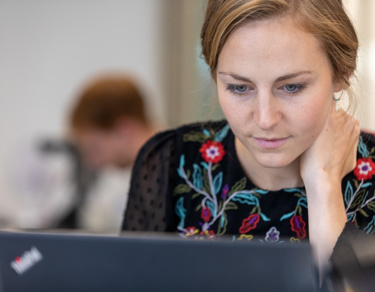Frequently asked questions
Where does Causeway support people?
Causeway is a national charity campaigning, educating and building networks for change UK-wide. We accept survivors from across the whole of the country. Our head office is in Sheffield, with further offices in Liverpool, Sunderland and Manchester. Many of our modern slavery services take place in Cheshire, County Durham, Greater Manchester, Lancashire, Merseyside, Northumberland, Tyne and Wear and Yorkshire, although some do operate elsewhere. Our criminal justice services are predominantly hosted in Merseyside and Yorkshire.
Does Causeway support children?
In our modern slavery services we only have the contract to support adult survivors of modern slavery, but we do run family safe houses for survivors who are referred to us with children, or who are pregnant. Children who are rescued from exploitation are supported by their local authority, social services, or the charity Barnardo’s.
How are Causeway’s modern slavery services funded?
Causeway is one of a number of organisations across the country who are subcontracted by The Salvation Army to administer the Modern Slavery Victim Care Contract awarded by the Home Office. This means we receive some government funding for our work with survivors of modern slavery. We have additional voluntary income which comes from corporates, individuals and trusts and foundations which is used to provide services, items and therapies above and beyond the MSVCC contract. However, to really meet the needs of survivors and service users we are always looking for additional funding.
How does someone get referred into a Causeway safe house?
When someone self-identifies or is identified as a potential victim of modern slavery, they are referred by a ‘first responder’ into the government support scheme known as the National Referral Mechanism. Once they have agreed to enter the system they are allocated a space in a safe house, usually far away from the scene of their exploitation. Causeway is one of a number of charities that run safe houses for survivors of modern slavery across the UK.
What should I do if I think someone is a victim of modern slavery?
If you believe someone is in immediate danger, or if that person is a child, you should call the police on 999. If you are a member of the public concerned about someone, you can call the Modern Slavery Helpline on 0800 0121 700. You can also report concerns to the Gangmasters and Labour Abuse Authority on 0800 432 0804. If you are a professional looking to refer a potential victim of modern slavery into the National Referral Mechanism (NRM), please visit the government’s online referral advice page here.
How are people exploited in the UK?
Example 1: Some people who come to the UK do so after being approached by ‘agents’ in their home countries who promise them work. They are offered good jobs and a chance to escape poverty or lack of opportunities. Once they arrive in the UK, they have their documents removed, and told they owe their agent fees which must be paid back quickly. They are often unfamiliar with English, don’t know where they’ve been taken to, don’t know anybody, and are told that if they are found by the UK authorities they will be arrested or deported. They are forced to work long hours in sectors such as agriculture and construction, or forced into the sex industry, but are paid nothing.
Example 2: A family or person living in Britain may encourage a relative or acquaintance from abroad to come to the UK for marriage, or with promises of help to find work or education. Once they arrive they are kept isolated in the family home, treated badly, and forced to work long hours for free as the family’s domestic help.
Example 3: In the UK there is a country-wide problem with criminal gangs targeting vulnerable young people to recruit them for fraud, prostitution or drug dealing, which can be referred to as county lines. As well as using violence or blackmail, they may also play on a vulnerable person’s need for connection, or their desire for status or security. They will promise money or gifts, or offer a feeling of belonging. What begins as a ‘friendship’ quickly descends into a life of violence, exploitation and abuse from which they feel powerless to escape.
What happens when someone is identified as a potential victim of modern slavery?
When someone is identified as a potential victim, they are asked if they want to be referred into the National Referral Mechanism. Once there, they are supported in safe houses or similar by organisations such as Causeway while they wait for the Home Office to make a decision on whether they believe that person is a victim. Adults who are given a ‘positive reasonable grounds’ decision are given support, such as accommodation, money, and counselling, while they wait for a ‘conclusive grounds’ decision on their case. Local authorities support children. Upon receiving a ‘positive conclusive grounds’ decision, they are given at least another 45 days of support, often in safe houses or in community programmes. Those given a negative decision receive nine days of ‘move on’ support.
